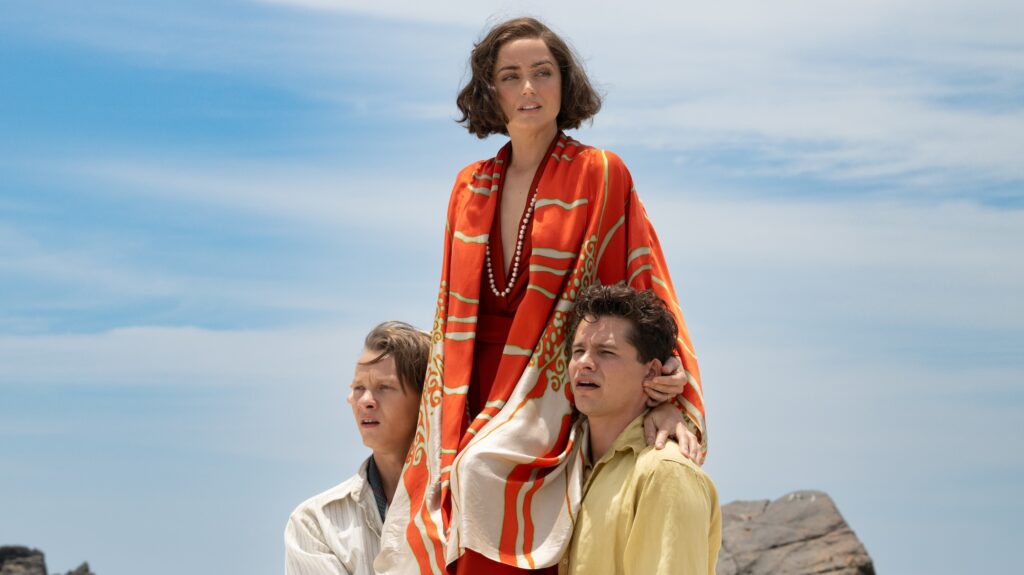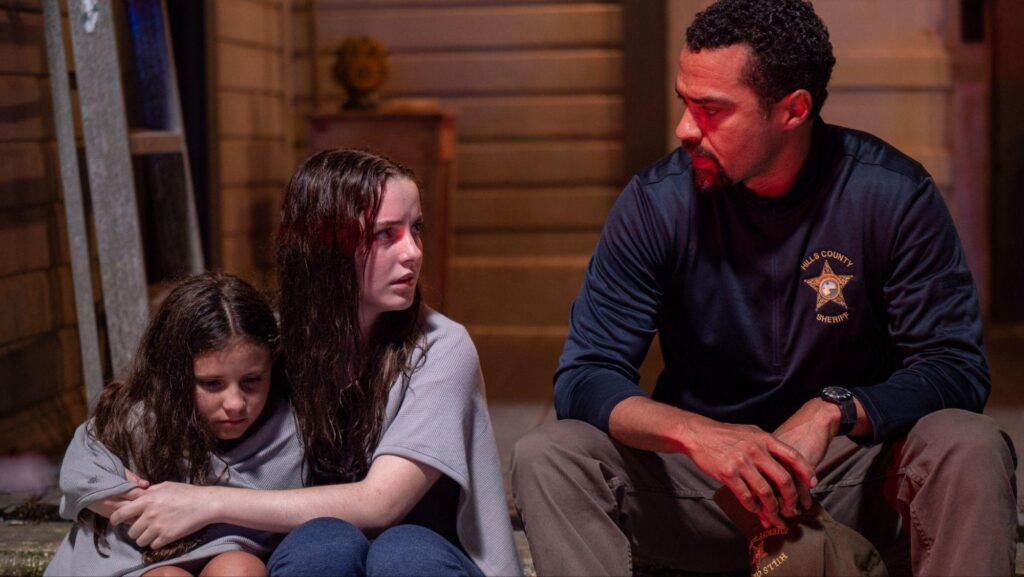Ron Howard always wanted to visit the Galápagos. In the director’s mind, it was a “bucket list” destination before there was a movie called The Bucket List. When we catch up with the Oscar-winning filmmaker, he even points out that he dreamed about this well ahead of his frequent collaborator and friend Paul Bettany filming Master & Commander there, and reporting back on the flightless birds.
“My fascination started with National Geographic magazine as a kid,” Howard says over a Zoom conversation. “I loved the marine iguanas because they look like marine dinosaurs to me. So I had always wanted to go, and by the way it’s an amazing place to go.”
But when Howard finally did visit (along with a family that includes daughter Bryce Dallas Howard among its ranks), a funny thing occurred. Despite all the natural beauty and one-of-a-kind wildlife, what captured his attention was a singularly grim story occupying a corner of a museum. And it wasn’t about nature; it was a window into the archipelago’s human history. It was a tale of survival and murder.
“So [while] looking at all the exotic wildlife, and scuba diving among the hammerhead sharks and what not, we went into a museum and one entire room was dedicated to this mystery, this story,” Howard says. “This amazing true crime story, and once we started to know about it and read about it as a family, it was all any of us could ever talk about.”
It was the story of Dr. Friedrich Ritter and the miniature exodus from continental Europe he unintentionally led during the rise of fascism in the early 1930s. In actuality Friedrich and his wife Dora arrived on Floreana (one of the roughest rocks in the Galápagos) in 1929. There the doctor and self-regarding moral thinker imagined he could build a new philosophy to counteract what he saw as a world spinning into the abyss. Instead he became a curiosity in periodicals and newspapers, and a beacon for others like Heinz and Margret Wittmer, a middle class German couple who also decided to raise their family on Floreana. Soon enough even came the alleged aristocracy and millionaires. But it was the hunger and desperation that proved to be the final, and most insistent, visitor.
“My daughter Bryce at the time was saying, ‘Dad, this would be a great movie,’” Howard remembers. “And I agreed with her because I felt like the characters were so rich and so entertaining, and so unusual, and yet in their own way kind of relatable too.”
The movie that came about from that visit is Eden, a film deliberately removed from the gloss and glamour of so many of Howard’s films like A Beautiful Mind, The Da Vinci Code, and even Solo: A Star Wars Story. Yet that does not mean Howard was unable to build a starry cast. In fact, Eden is filled with familiar faces like Jude Law as the misanthropic Friedrich and Vanessa Kirby as his wife and devoted disciple, Dora. The film also features Daniel Brühl of Inglourious Basterds fame as German bureaucrat turned ex-pat Heinz and the current It Girl, Sydney Sweeney, in a nearly unrecognizable performance and fairly credible German accent as Margaret. But the closest to a flashy movie star turn belongs to Ana de Armas as the self-described Baroness, a 1930s socialite with wafts of Sally Bowles airs coming off her cigarettes.
“We did talk about the flappers, some of the screen stars of the 1920s, some of the French cabaret performers,” Howard says of that vamping performance. “We assumed that the Baroness had attempted to follow that path at some point in her career. She had been a fan dancer or a cabaret performer at some point based on all of the accounts we read, so we were looking at a lot of those flapper icons and assumed they’d be heroes of the Baroness that Ana’s Eloise would have copied.”
It’s a big performance and by design it clashes with the cruel reality of the film’s brutal setting.
“Floreana is rugged, it’s a desert island, not a lot of people live there even now,” Howard notes. “It’s not one of the beautiful islands that everybody wants to visit and have a vacation on. It’s harsh, it’s very harsh.” In a sense the Baroness and the surroundings visualize the cognitive dissonance between civilization and nature, fantasy escape and the grim realities of living outside the system. It even suggests the chasm between Eden and Howard’s other films.
“I always knew it was un-Hollywood,” Howard explains. “I thought this would be an interesting movie 15 years ago, and at the time I was literally dashing out on my Blackberry—to put it into perspective—an outline for what the movie version could be. But I never even tried to take it to a studio, I never thought it would be a studio film.”
Rather Howard ruminated on the story, which became a screenplay he co-wrote with Noah Pink, while gaining confidence that he could make it outside of the studio system after producing a previous independent gem in 2013, Rush (which also co-starred Brühl).
Says Howard, “I knew it was unusual for me, and yet I just felt like it was going to offer these fantastic performance opportunities, and that’s always my favorite thing: to work with the talent in challenging roles. And in this case I had a whole ensemble of those to offer up.”
Yet one other key element occurred which allowed Eden to break through: our own current world lived through COVID and everything that came after. It was only while experiencing lockdown that the bleak despair of Eden came into focus for the director, as did the tone of a story about characters who flee civilization ostensibly to build their own Eden (or creation myth), but in actuality are attempting to survive what they consider to be end times.
“It’s probably rare when human beings don’t feel like they’re coping with end times,” Howard considers, “but it was heightened at that point, especially in Germany and around the world when the Great Depression was under way. The world was licking its wounds from the brutality of World War I. Also there was so many autocratic, fascist political movements going on that was very unsettling, and I think we’re feeling that now. Between the technological revolution that’s making us all wonder what the economy and our career paths are going to be like in the near future, to the political movements and all the questions that that raises. It’s one of the reasons that one of the most searched phrases on the internet is ‘off the grid.’ There’s a real fascination with this option.”
Yet the flip side to the fantasy of wanting to live off the grid is the reality that Eden presents.
“Here’s a case where people actually tried it, and this is what it looked like and this is what the outcome was,” Howard points out. “I thought the story had a real viability for contemporary audiences in addition to being entertaining and surprising.”
It’s a movie about surviving the end of the world—and maybe making that concept uncomfortably real. Perhaps like the characters’ self-discoveries in the film, it’s an interesting counterpoint to what began as a dream getaway.
Eden is in theaters on Friday, Aug. 22.
The post A Ron Howard Family Vacation Led to His Darkest Movie appeared first on Den of Geek.




